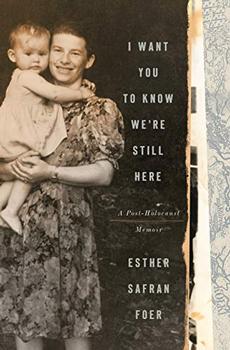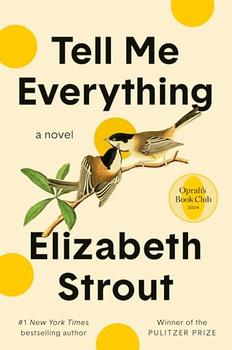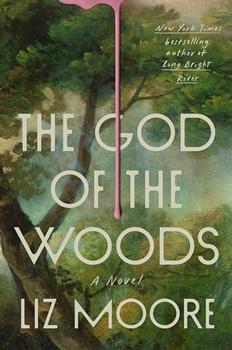Write your own review!
Chris (CA)
Read this book!!
What a wonderful book. I have read many books about the horrors of the Holocaust and its victims, survivors, villains, heroes, and yet I learned so much from this author's fascinating story. For those who believe that life went on normally after the survivors were rescued, this book is a must read. The author's family was in a displaced persons camp for years after the war. Many of these people were treated as badly there as they were during the war. Anti-Semitism did not end when World War II ended. Many survivors never spoke about the horrors they experienced and witnessed. And so, generations later, it is hard for their descendants, like this author, to uncover family histories and what happened to family members. So many memories locked away. Overwhelming losses. The reader accompanies the author on her journey of exploration to find out about her parents' lives and families before the Nazis came. The amount of research and interviewing she did is incredible. There is so much to discuss in this book. Book clubs, people searching for lost relatives, families of Holocaust survivors, students of history, and so many others should read and discuss this book.
 Susan R. (Julian, NC)
Family Memories
Susan R. (Julian, NC)
Family Memories
This is a memoir of Esther's family - four generations who are unable to pass her mother's stories to each generation because her mother's memories were so terrible that she refused to talk about them. She would occasionally give a small amount of information but would refuse to answer questions. When Esther finds out that her father had been married before and had a daughter, she know that she must travel to the Ukraine to find out all she can about her half-sister.
Esther's mother and father were both the only survivors of the Holocaust in their immediate family. Since her mother refused to share information about this horrific time, Esther spent her entire life searching for answers. Armed with only a hand drawn map and an old photograph, Esther and her son travel to the Ukraine to try to get some answers to her lifelong questions about her parents' lives. She wants to find where her father hid during the war and the people who helped him, she wants to find her mother's village and anyone who remembered her and she wants to find out information about her half sister born before the war started.
It was difficult to find out too many answers since so many people were dead but she was able to find children and grand children of the people she was searching for and get information. The town her mother grew up in was totally demolished but she found someone who grew up there and was able to show her where her mother had grown up. As she and her son travel, they find mass graves where Jewish people were shot and buried. Many of the markers on these mass graves were falling apart and covered in weeds indicating that the newer generations memory of that time in history is being lost. At each mass grave and grave marker of family members, she left a picture of her family to let her ancestors know that part of the family had survived and was 'still here'.
This was a beautiful and well written memoir about one person's goal to find the memories of her mother and pass them down to future generations so that family history wouldn't be lost.
Thanks to BookBrowse for a copy of this book to read and review. All opinions are my own.
Janine S. (Wyoming, MI)
Powerful and moving memoir
This book is a powerful and moving memoir of a woman's quest to keep the memory of her family alive after its near destruction due to the Holocaust. Beautifully written we the readers enter a journey along with the author to open up the silence of the past as she searches for a half sister killed by the Nazis in Ukraine. The importance of memory - never forgetting the past - is powerfully illuminated in this book. And the need to end the silence around the horrific event of the Holocaust is expressed in the author's journey to learn about her father's s life before coming to America. It was also sad to read about how the mass graves of Ukrainian Jews are falling into disrepair and forgetfulness as if the underscore that memory unless maintained can be lost. I thoroughly enjoyed this book. This is a must read for everyone!
Maribeth R. (Indianapolis, IN)
In Search of Memories
Many stories have been, and will be told about Holocaust experiences and survival after. Esther Safran Foer begins her memoir by explaining the experience of memory. She delves into the effect memory has on someone who longs to know her past, but can't quite access it because stories can't be told. The tales may be too painful, too buried, or never even seemed available because those who could tell the stories were wiped out and their ability to produce memories snuffed out like a candle.
Esther takes us on a remarkable journey to retrieve that past. She introduces us to her amazing mother and sons, and allows us to experience her feelings as she returns to Ukraine to seek out those who may still tell stories about her family that will help mend the quilt's missing pieces.
This is a wonderful memoir that will be cherished by those who value family stories and the need to carry those tales on to future generations. Though the book is not long, it offers much food for thought for book groups, as well as for personal reflection on the true value of the history and importance of our own family recollections.
Readers would do well to also incorporate works by Foer's sons on their reading "to do" lists. I am sure Esther will not mind the plug for her talented brood.
Janet O. (Beaverton, OR)
I Want You to Know We're Still Here
As a child, Esther Safran knew that her parents had been the only members of their immediate families to escape the reach of Nazi Germany during World War II. Natives of small villages in the Ukraine, they had survived due to their courage, some luck and the support of strangers and friends. She yearned to know more but her parents were reluctant to talk about their experiences and share the stories of loss those years represented. In an attempt to solve some of the mysteries surrounding her family and to unveil the many secrets kept from her, she has devoted most of her adult life to researching her family history. Not only did she study archival records and historical documents, she traveled to Brazil and the Ukraine to meet with survivors who could help her tell her story. This book is the account of her efforts. The first half of the book is devoted to telling how her parents escaped, spent time in displaced persons camps and ultimately emigrated to the United States. The second portion focuses on her research and discoveries. This too reveals heartwarming detail and allows the reader to understand how important it is to embrace and honor family histories.
Although the narrative would benefit from additional editing during parts dealing with the research, the book is an important addition to the genre of Holocaust literature. It could even be considered an essential read for those wanting to better understand the impact of the attempted extermination of the Jews not only on actual survivors but on their extended families for generations.
Mary Jane D. (Arlington Heights, IL)
Good Personal Family History
I Want You to Know We're Still Here is a memoir that makes the terrible aftermath of the Holocaust personal and believable. Esther Foer and her sons question and search for missing details of their family history and find some things not expected. They do much research and visits to the areas that were associated with their family and didn't give up until they found answers and many unknown relatives. What they find puts an exclamation point on how the Nazis wiped out not only whole towns and residents but also their history. Although written from her personal perspective I'm sure many families experienced the same fate and relatives are still trying to piece details together. Although the names were a bit confusing (real names ) her writing was clear and the story progressed to its final conclusions quite smoothly. I would recommend the book to those interested in Jewish history and the Holocaust and think it would make a good book club choice.
Janet H. (Utica, NY)
I Want You To Know
I have read extensively on the Holocaust and appreciate the different perspective this book offers on the horrors and suffering experienced by so many. Esther Safran Foer doesn't offer a neat package of her parent's lives during the years of World War 2 and its aftermath. Instead we experience her search for answers and while some are reached, in some cases the silence reminds us that the traumas continue into future generations. The book is not extremely well organized and at times the story circles round and round. There are so many names it is easy to get a bit lost. However, this is also part of the value of the book...I was left feeling as if I had just had a conversation with a relative who is so caught up in the remembering and sharing her thoughts that logical organization is less important than the story itself...a story that is ultimately one of triumphant survival.
 Suzanne G. (Tucson, AZ)
A great memoir
Suzanne G. (Tucson, AZ)
A great memoir
This book was informative and interesting. I give credit to the author for the research and traveling to find the truth of her family. I did find the people described in the book hard to keep track of. That the names weren't familiar to me didn't help the remembering as to who was who and why. But I found a way to combat that—I read it again and it was much easier to follow. I hope the finished book will have informational captions. I learned a great deal concerning the Jewish faith. I will recommend the book to my reader friends.
Anyone who denies the Holocaust needs to read this, but we realize they never will.




